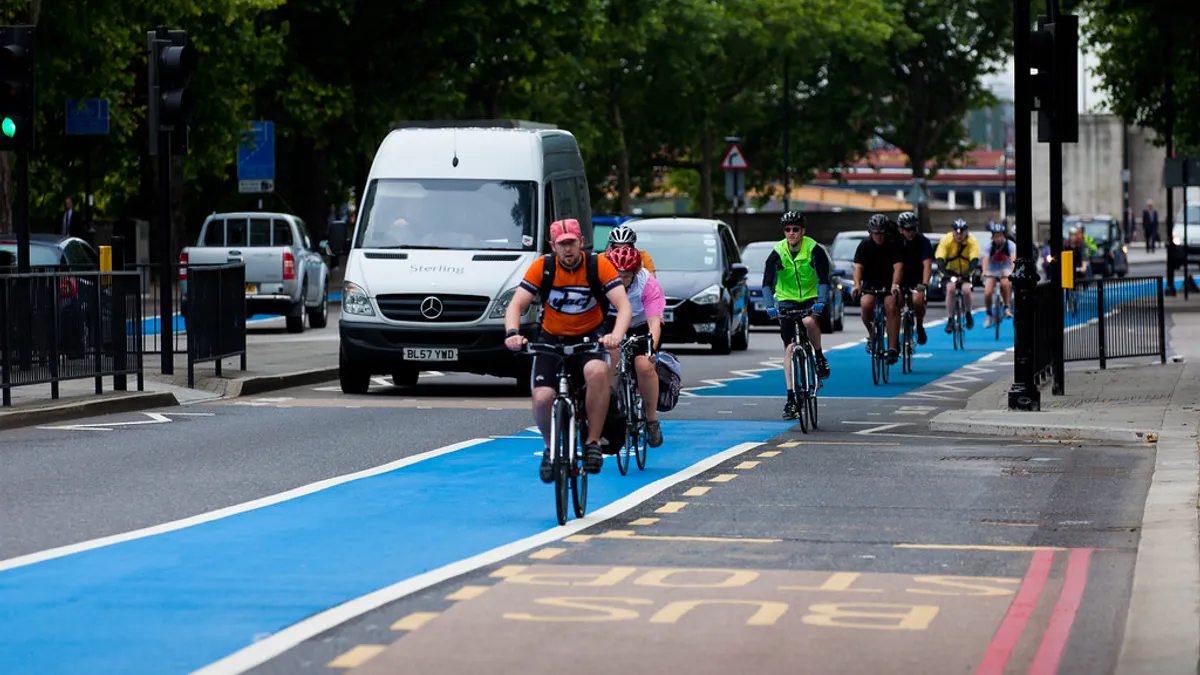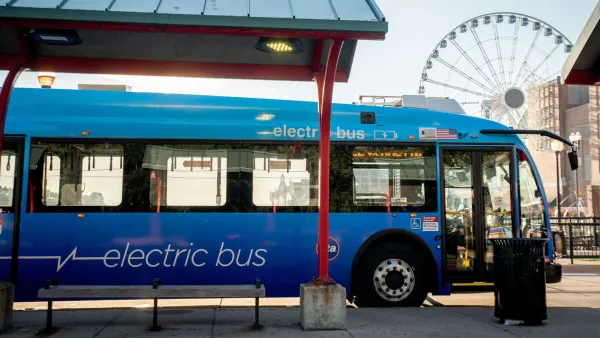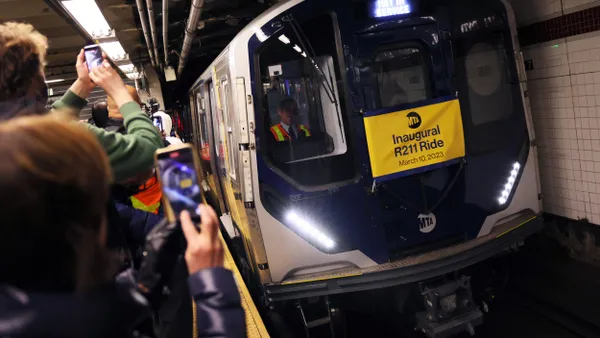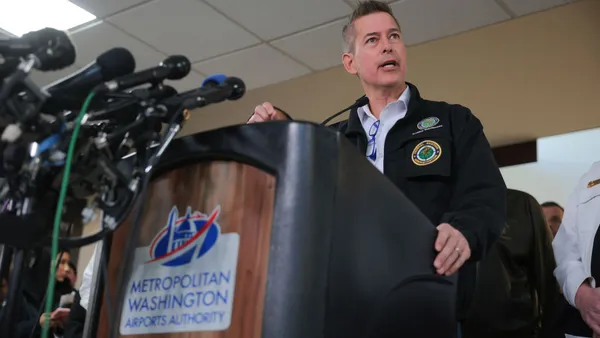Dive Brief:
- Six British cycling and walking commissioners and one regional authority transport committee chair have penned a letter to the federal transport secretary calling for infrastructure improvements to boost cyclist and pedestrian safety. One part of the letter claims the government has wasted "hundreds of millions of pounds" on painted bike lanes that are merely a "gesture" and do nothing to actually improve safety.
- The commissioners provided five key recommendations for nationwide action:
- Commit to long-term devolved funding
- Commit to minimum quality levels
- Enable local revenue retention from fixed penalty notices to fund road danger reduction measures
- Enable commissioners to innovate by keeping road traffic regulations under review
- Account for the true cost of car use on society
- The commissioners believe improvements in these areas "unlock the potential for Britain to become a more active, healthier and happier nation."
Dive Insight:
This letter acknowledges that the federal government implemented some initiatives to promote cycling and walking, but blasts existing infrastructure and policies as being inadequate to ensure safety. Without safety assurances and robust infrastructure, citizens won't increase the amount they cycle and walk, the signatories imply.
They suggest the initiatives to encourage cycling and walking are too short-term and do not allow for long-term local investments. The commissioners also want greater control over local traffic regulations, which they say would allow for safety pilot programs, such as extending pedestrian crossing times at intersections.
A bold portion of the letter indicates the money already spent on painted bicycle lanes is "insufficient" to make cyclists feel safer. A study released last year supports that theory: More than 70% of the 320 London cyclists surveyed reported feeling paranoid while cycling in public and that other roadway users were out to get them.
Because there are no national walking and cycling infrastructure minimum safety standards, without intervention the government will continue "wasting public money and failing to persuade people to change their travel habits," the letter says. Although some individual cities have implemented their own minimum safety standards, the signatories say commitment at the national level is necessary.
This issue is one that transpires in the United States, as well. As bikes and electric scooters have grown in popularity, cities have become more aware of the need for protected bike lanes. The National Association of City Transportation Officials (NACTO) says protected bike lane mileage has increased 600% in U.S. cities since 2011, however even more action is needed to prevent fatalities and reach Vision Zero goals shared by major urban areas across the country.











